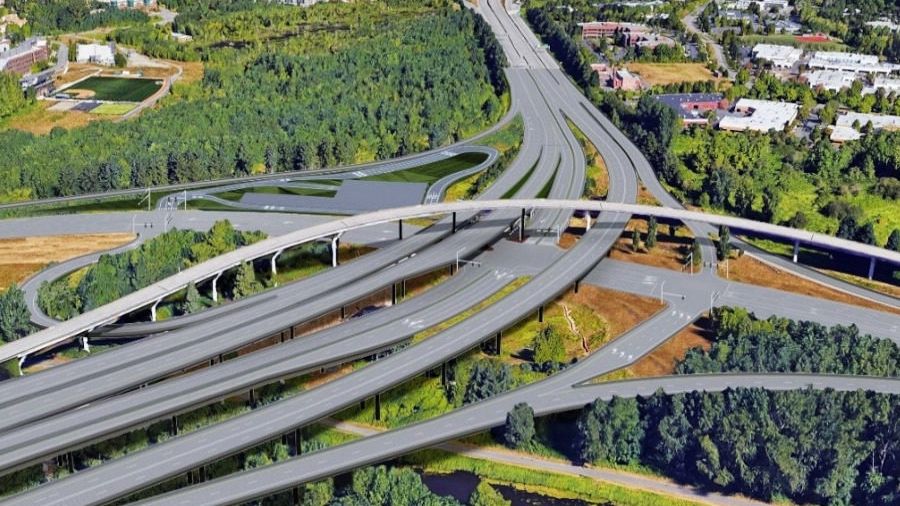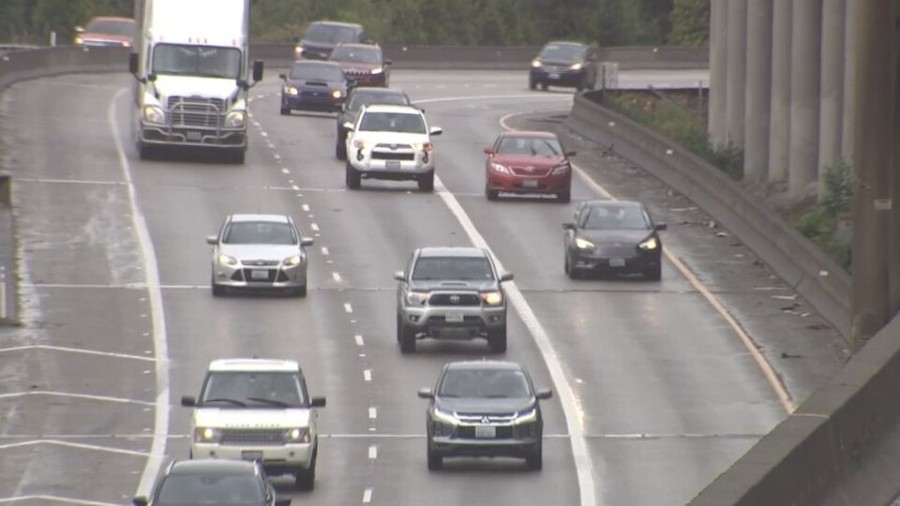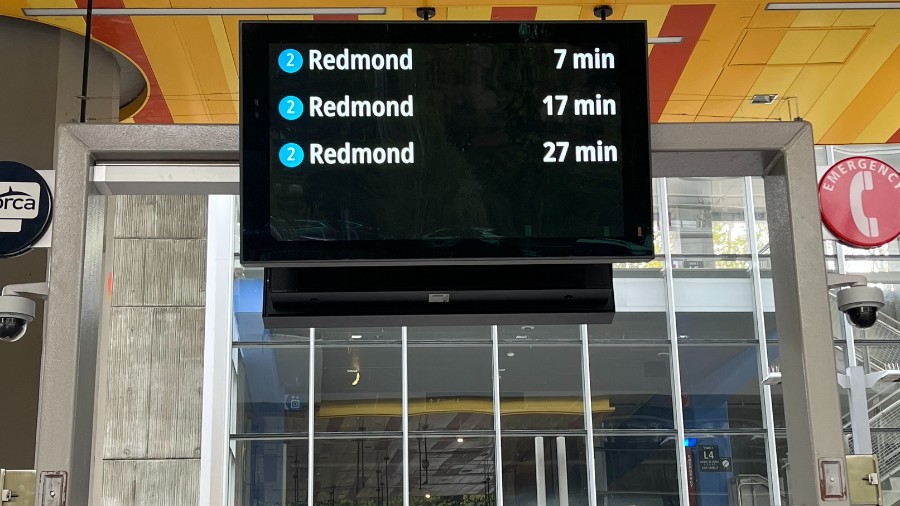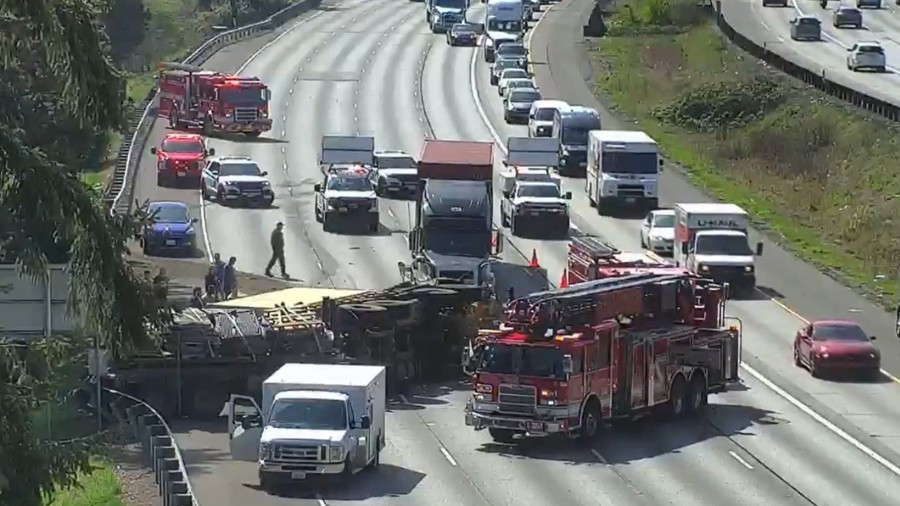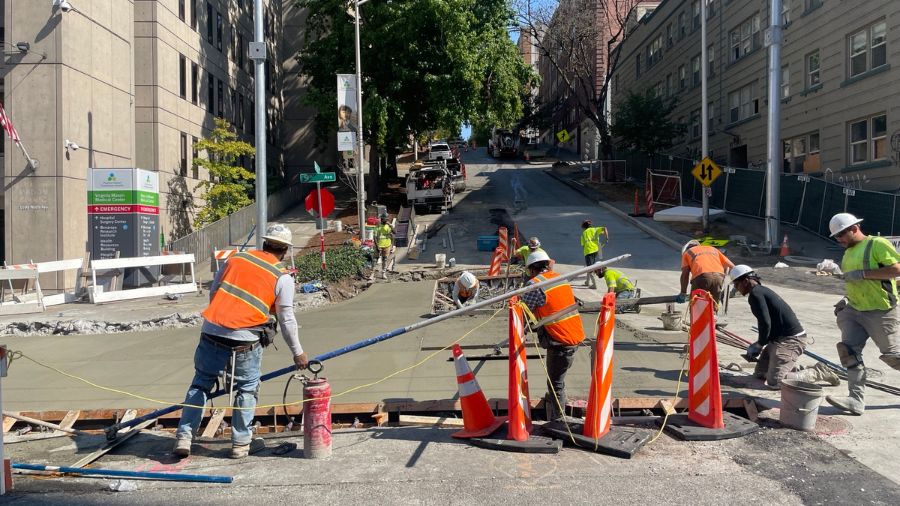Sound Transit pushes Congress for pandemic relief to stay afloat
Jul 15, 2020, 6:54 AM

Columns going up in Mountlake Terrace, part of the Sound Transit light rail extension to Lynnwood. (Chris Sullivan, KIRO Radio)
(Chris Sullivan, KIRO Radio)
When you get $54 billion from voters, you wouldn’t expect to be asking Congress for a bailout just years later, but that’s the situation facing Sound Transit right now as it powers through the pandemic.
Pandemic, recession could have Sound Transit out of tax money by 2028
Sound Transit expects to lose between $8 and $12 billion in forecasted tax revenue over the next 20 years. That’s what happens when passengers stop using your service because they aren’t going to work, and the tax revenue that funds your agency dries up in a recession. Ridership is also still down by 83%.
Sound Transit CEO Peter Rogoff has signed a letter from transit agencies around the country asking Congress for $32 to $36 billion dollars to keep public transit afloat. He joined his transit colleagues in a Zoom meeting to underscore that need.
“The only way the transit agency will be able to move people and our economy is if the next federal response to COVID-19 is focused on replenishing the revenues that are disappearing all around us,” he said.
Sound Transit already received more than $160 million under the CARES Act. That’s something Rogoff is thankful for, but he said that money really won’t sustain the agency, especially if it wants to give voters what it promised.
“It’s really up to the Senate to decide whether they are going to replenish some of our lost revenues to allow us to continue to do the transit expansion programs that our voters have endorsed,” Rogoff said.
Rogoff said keeping these expansion projects going and keeping workers employed is going to be crucial in helping Puget Sound pull out of this recession.
“Back during the Great Depression, public works was at the center of the nation’s recovery,” he told the group. “Back in 2010, Sound Transit construction in this region was elemental to the economic recovery of this region. We want to continue to serve that purpose during the recovery that’s going to be needed from this pandemic and the associated recession.”
So what’s at risk here as Sound Transit deals with this large funding gap? What projects are in jeopardy?
I had a chance to speak with Peter Rogoff after this event, where I asked him what’s on the table from the board’s perspective?
“Delaying all the projects that are not currently under construction or under contract by five years would solve the problem,” Rogoff answered. “We are not recommending that the board follow that one size fits all approach.”
“Under construction” and “under contract” are key distinctions; those projects are safe.
Sound Transit reintroduces fares June 1 with Recovery Fare option
“That’s Federal Way, Lynnwood, Northgate, East Link out to Redmond, our expansion in Tacoma,” Rogoff said. “The issue is how quickly we will be able to get about the business of doing the other projects that we all want to see happen and the voters voted for in 2016.”
That leaves Lynnwood to Everett, Federal Way to Tacoma, West Seattle, and Ballard light rail extensions facing long delays. The same goes for 405 Bus Rapid Transit and improvements to Sounder service.
Rogoff is hoping the board will look at each project and make judgments based on what will provide the greatest service to the region.
“We want to look at individual projects, find out whether there are alternative funding sources that are available, find out if projects are segmentable, so that they rather than be delivered all at once but delivered in segments in a more affordable fashion,” he said.
The X-factor in all of this is whether people return to transit as the nation pulls out of the pandemic.
In listening to transit CEOs from New York, California, Florida, Texas and elsewhere, they have no idea how the public will feel about getting back into trains or buses. All have seen ridership crater. At one point, New York City was down by 90%, while Philadelphia and Cleveland were both off by nearly 70%.


